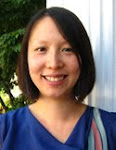A recent alum who is attending medical school this fall after working in business for the last couple years was kind enough to pass along some advice about interviewing. We've spoken to many students and alums who are concerned that a background in business will sink their applications. This is of course not true but it is important, as is always the case, to articulate why it is that you are now pursing medicine. As far as addressing these issues during interviews, here's his advice:
Succinctly and clearly tell the interviewer why you want to be a doctor. Remember that your reasons for pursing a medical career are probably similar to those of traditional applicants. You might focus on a need for a career with a tangible purpose. I often mentioned that I wanted to be able to go home each day with a clear idea of what I had accomplished and the feeling that I had helped another.
Be able to explain and or justify your choice to go into business. Some doctors who went straight into medicine without deviations in their career path might find it hard to understand your justifications. If questioned about your dedication to medicine, demonstrate that your experience in finance actually reaffirmed your initial belief that you want to be a doctor. Without being negative about your time in business, mention what you might have been missing to feel fulfilled by your career.
Market yourself as a mature applicant with real world work experience. Describe ways that your experience could make you a better doctor.Don’t get discouraged by an abrasive interviewer. Occasionally, you might run into an interviewer that continues to question your dedication to medicine. Do your best to stay positive, and don’t take it personally.
- Experience in a team oriented environment
- Communication skills
- Attention to detail / execution
- Responsibility
- Work ethic

